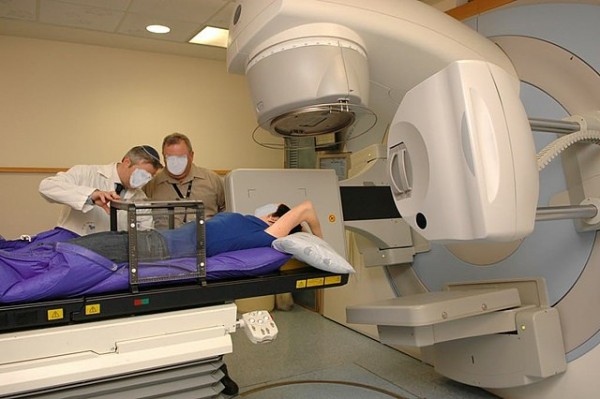Radiotherapy After Surgery Does Not Benefit Prostate Cancer Patients, New Study Finds

Researchers found that 'subjecting prostate cancer patients to radiotherapy' right after therapy does not give them any benefit to staying cancer-free.
Reports recently indicated that new study findings could spare prostate cancer patients radiotherapy after surgery. It proposes that it does not have any benefit and can be used later in the recurrence of the disease.
According to the University of College of London researchers, their research findings could not spare thousands of men who undergo radiation therapy after going through surgery for prostate cancer.
Typically, radiotherapy is used to kill cancer cells. It is also used to guarantee that tumors do not return. Nonetheless, this new study, which The Lancet published discovered, does not have benefits.
The study authors explained that radiotherapy or radiation therapy administered later or when cancer has recurred had fairly positive results.
Meaning, around 15,000 men could get rid of radiation therapy each year, including its side effects like urine incontinence and impotence.
ALSO READ: Link Between Autism and Eating Disorders May Be the Reason Emotions Are Hard To Identify
Study Findings
According to lead author Dr. Clarie Vale, the findings propose that after surgery, "Patients whose cancer is confined to the prostate," or has spread only to nearby organs or tissue, can safely be spared routine postoperative radiation therapy, as well as its linked side-effects.
The lead author added radiotherapy should just be given to patients if they present early signs that their cancer may be recurring.
Dr. Vale also said, Guidelines and policy about the standard of care for prostate cancer need to be updated according to findings.
The study authors investigated date from patients based in different countries like France, the United Kingdom, Ireland, New Zealand, Canada, Denmark, and Australia to understand radiotherapy's optimal timing in patients with prostate cancer after their surgery.
DON'T MISS THIS: 6 Reasons Why You're Gaining Weight Unintentionally
Over 2,000 Prostate Cancer Patients Involved in the Research
This particular research engaged over 2,100 men, with almost 50 percent of the participants getting radiation therapy right after surgery.
Meanwhile, according to the study, the other 50 percent of the respondents had "early salvage radiotherapy," in which there is a delay in therapy until cancer recurs.'
The study authors discovered little to no difference between early salvage and immediate radiotherapy.
Other Study Findings Showing No Benefit of Radiotherapy Right After Surgery
In a separate report, a leading news site said that in the most extensive investigation of its kind, researchers found that "subjecting prostate cancer patients to radiotherapy right after therapy" does not give them any benefit to staying cancer-free.
The same report said, the result "stems from a review of four studies that together followed outcomes from over 3,500 prostate cancer patients who came from different countries.
According to Chris Parker, the study first author from the Institute of Cancer Research in London, if their findings contribute to the change in standard practice, "The good news is that" many men will get rid of the side effects of radiation therapy in the future.
Parker's team was to present its study findings at the European Society for Medical Oncology, an annual Barcelona meeting.
The study first author also emphasized that the side effects of radiation could be troublesome. He added that the side effects would include "urinary leakage and narrowing of the urethra," making it difficult to urinate.
Bot side effects, he elaborated, are probable complications following surgery alone, although the risk is increased if there is also radiation therapy.
IN CASE YOU MISSED THIS: Is Excessive Exercise Linked to Eating Disorders? Here's What Studies Say
Check out more news and information on Cancer on MD News Daily.
Sep 30, 2020 07:00 AM EDT





